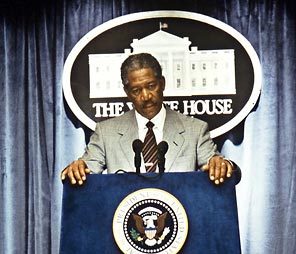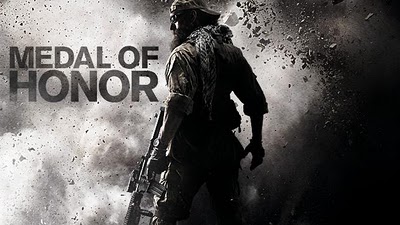This post has not been edited by the GamesBeat staff. Opinions by GamesBeat community writers do not necessarily reflect those of the staff.
We’ve all seen trends in this industry come and go. We experience them the same way movie-goers do. I’m sure most of us remember when it seemed like every time we opened the paper to view show times it seemed like there was some kind of natural disaster waiting to terrorize your average (but ultimately courageous and brave) blue-collar white person; be it a volcano, tornado, giant asteroid, or black president.

"That wasn't R. Kelly. That was me."
Mario popularized platforming, so companies started producing platforming games. Grand Theft Auto 3 introduced open-world gaming, and, for a time, any game that led you down a straight path was “linear.”
The idea to write on this subject came to me in a conversation I had with a friend who had just bought a PS3. He said that most of the games I had he already owned on 360 (with the exception of Metal Gear Solid 4). I mentioned that I had Brothers in Arms: Hell’s Highway, and he responded with “I never really understood any of those World War II games.” It hit me a few minutes after we were done talking about Medal of Honor and other titles that the trend of WWII games had come and passed; to my knowledge Hell’s Highway was the last major WWII FPS to be released.
Looking back, I have to wonder: “Would he have been more open to playing BIA if it were the first game to use the setting?”
I consider myself to be somewhat of a WW II buff, and I honestly think my fascination with it was sparked by video games. I can’t remember the exact moment I became a sponge for information, but I believe it may have had something to do with Saving Private Ryan and Medal of Honor: Frontline. I grew more and more enamored with the subject matter as we studied the War in high school: reading Eli Wiesel’s “Night” in English, and studying the politics of war and watching Schindler’s List in history. I’m probably the only gamer in the world that's sad to see the genre pass from video games almost completely.
Perhaps the number of WWII FPS that were released during the latter part of the 90’s and the first half of the 00’s was due to the rise of WWII stories in other popular media. 1998 saw the release of Saving Private Ryan, while 2001 saw the release of the Band of Brothers series, and 2004 marked the 60th anniversary of D-Day. It seemed the genre would never come to an end, and game reviewers everywhere would continue using their standard “Yes, another WWII game” spiel in every write-up.
These days, Call of Duty is a household name, even in those without consoles. I’ve eagerly awaited every installment after being hooked on the first demo for CoD1. Each game only came more and more polished (at least for the ones developed by Infinity Ward), and most other competitors followed trends set by IW.
While I (and many others) have sung the series’ praises for years now, the brand didn’t become what it is now until they moved away from the WWII setting with Call of Duty 4: Modern Warfare and Modern Warfare 2.
And so here we are, yet again, on the verge of another trend change. The “modern FPS” trend has hit its peak. Even Medal of Honor, a series steeped in the WWII tradition, has jumped in to the present day conflict in Afghanistan for its setting and other, “modern” games, like Battlefield: Bad Company 2, are huge hits.

"It's straight up dawg time."
I have to wonder where the next MoH game will be set. Considering the setting of Call of Duty: Black Ops during the Cold War and the recent Bad Company 2 expansion set in Vietnam, are we finally moving on, now that the consumers and press are singing the same songs of tired eyes that they sung for WWII? And if we are, how long will we linger there? Which game will set the precedent for the rest to live up to? What exactly does motivate these trends in gaming?
I’m not $ure I have a good an$wer for that.
Michael Pangelina is not a writer; he is a Dadaist. You can see some of his fancy art things here. Also, the first person to correctly identify the reference in the title of this article (no googling!) gets a free drawing, with a subject of their choice.
